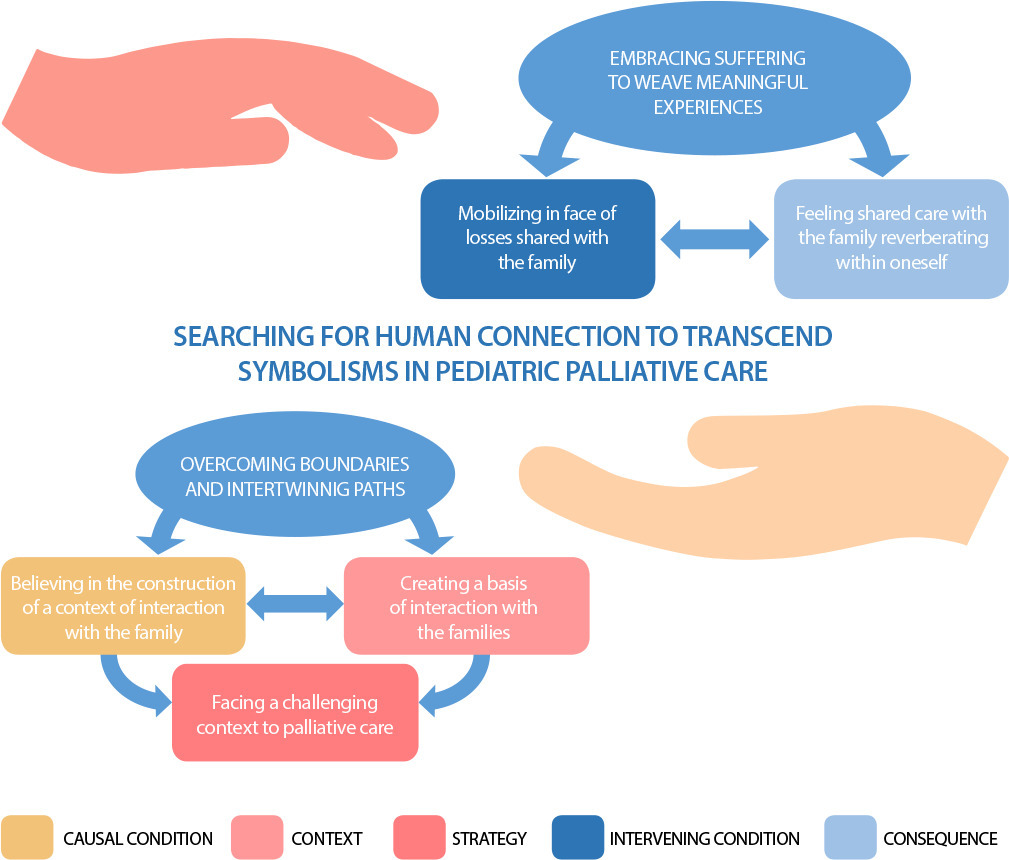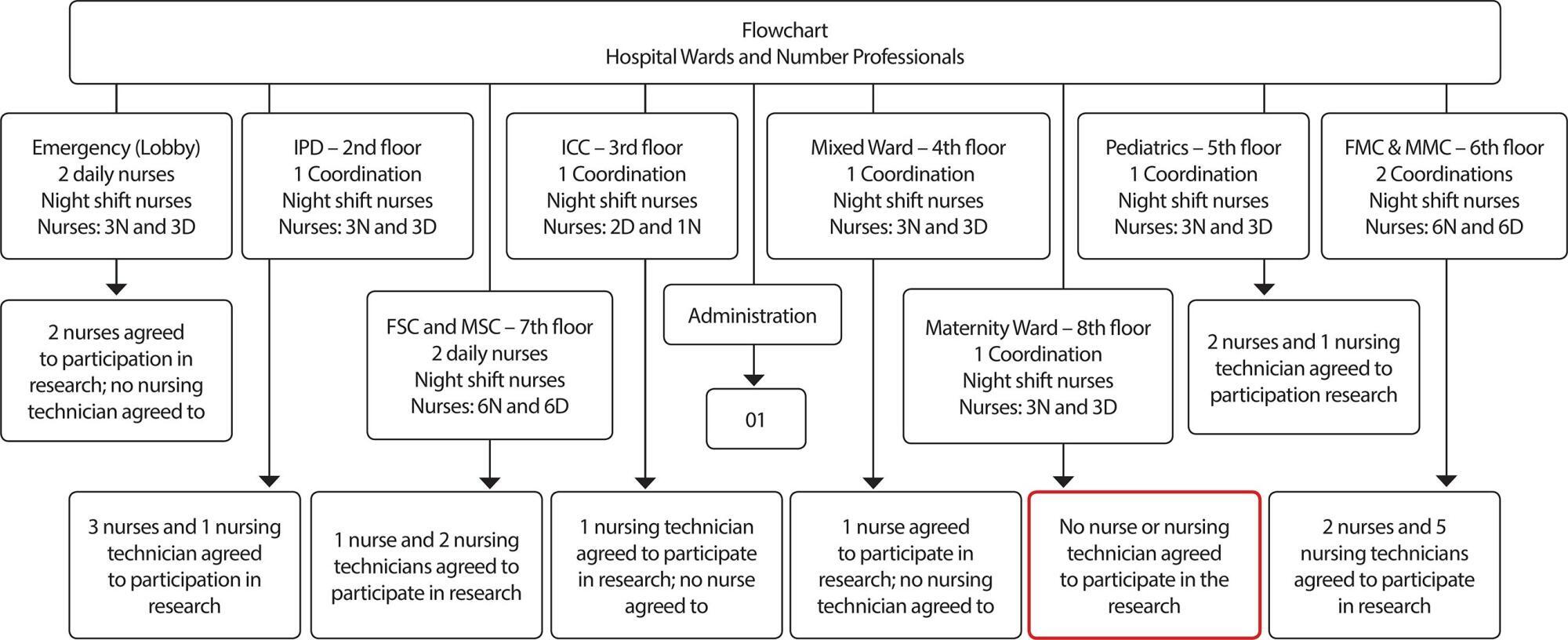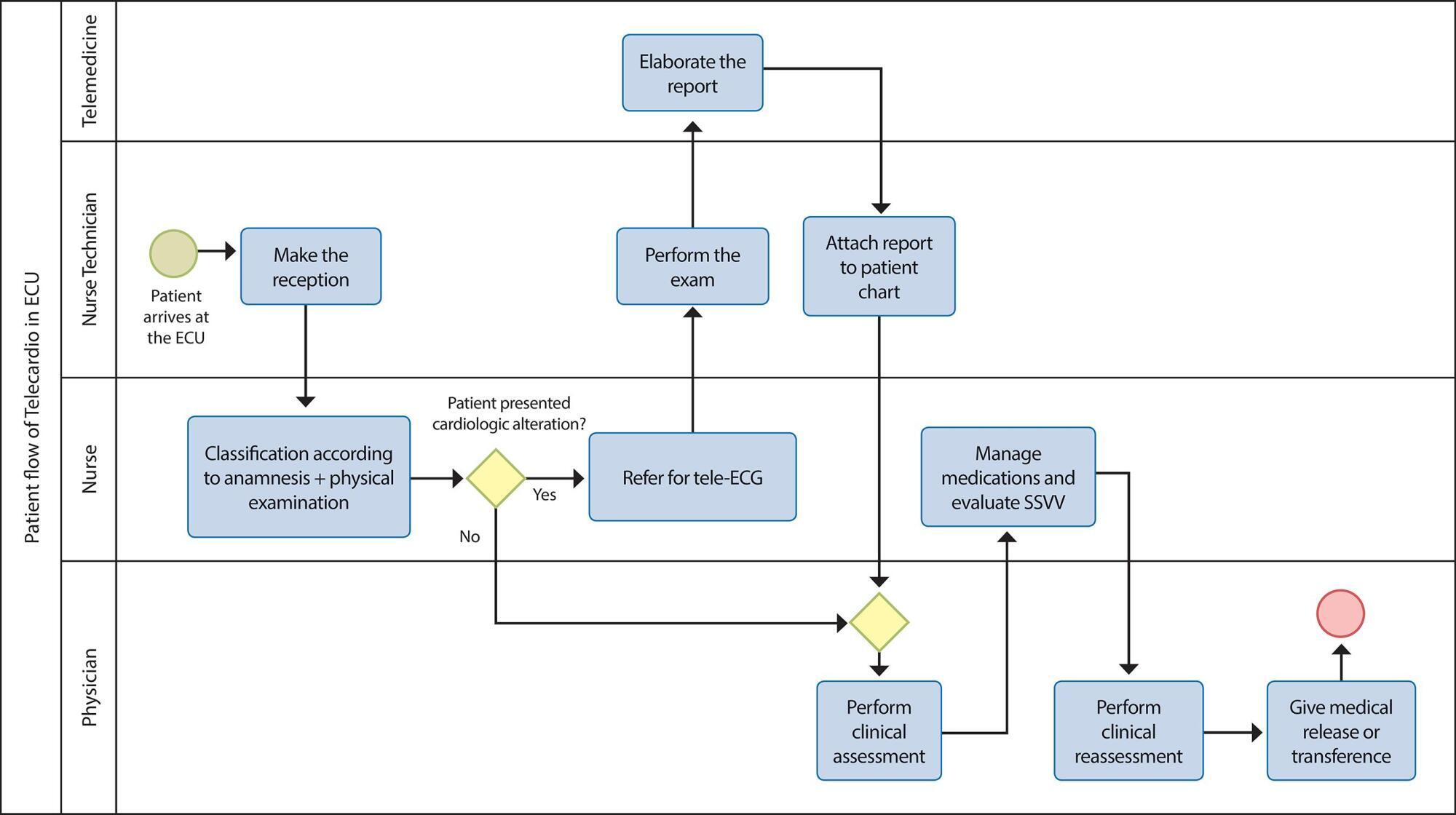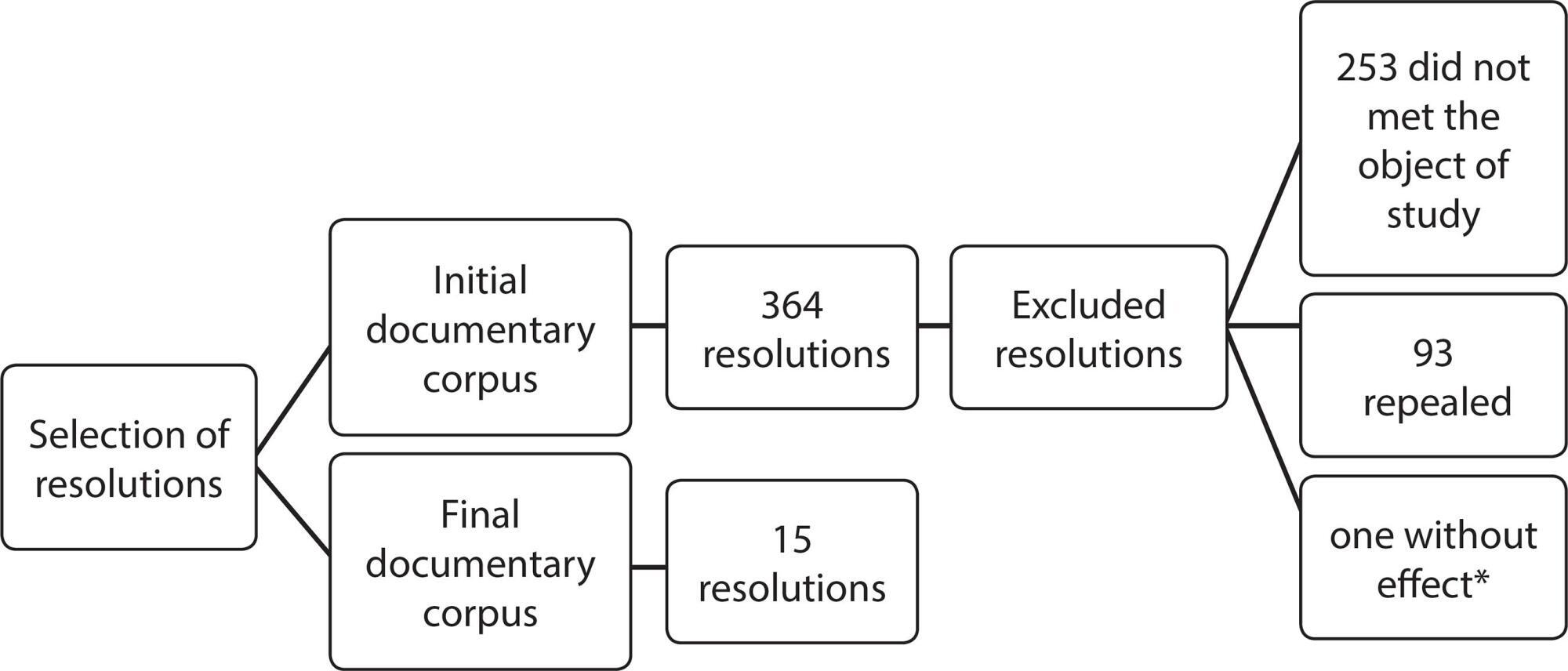-
REVIEW06-26-2023
Nursing care directed to burned patients: a scoping review
Revista Brasileira de Enfermagem. 2023;76(3):e20220205
Abstract
REVIEWNursing care directed to burned patients: a scoping review
Revista Brasileira de Enfermagem. 2023;76(3):e20220205
DOI 10.1590/0034-7167-2022-0205
Views0See moreABSTRACT
Objectives:
to identify in the literature and summarize nursing care in a hospital environment directed to patients who suffered burns.
Methods:
a scoping review, according to the JBI Reviewers’ Manual recommendations, with a search in the MEDLINE, CINAHL, Web of Science, Scopus databases and in the Virtual Health Library portal, through articles published between 2016 and December 2021.
Results:
of the total 419 articles found, nine were selected for analysis. The main care measures identified were changing dressings and types of coverage, vital sign control, non-pharmacological techniques for pain relief and opioid reduction.
Conclusions:
the complexity of burn care requires constant updating by the nursing team. Keeping it prepared to carry out the best nursing care practices for burn patients will promote adequate care, patient recovery and reduction of possible harm.

-
ORIGINAL ARTICLE06-26-2023
Searching for human connection to transcend symbolisms in pediatric palliative care
Revista Brasileira de Enfermagem. 2023;76(3):e20220476
Abstract
ORIGINAL ARTICLESearching for human connection to transcend symbolisms in pediatric palliative care
Revista Brasileira de Enfermagem. 2023;76(3):e20220476
DOI 10.1590/0034-7167-2022-0476
Views0See moreABSTRACT
Objectives:
to present a theoretical model for the interactional context of health professionals and families of children and adolescents under palliative care.
Methods:
qualitative study based on the theoretical frameworks of Grounded Theory and Symbolic Interactionism. Ten palliative care professionals took part in this study through semi-structured interviews employing snowball technique from 2020 to 2021.
Results:
the comparative data analysis resulted in the theoretical model “Searching for human connection to transcend symbolisms in pediatric palliative care”. It reveals symbolic elements that substantiate the construction of a collaborative context integrating two phenomena: “Overcoming boundaries and intertwining paths” and “Embracing suffering to weave meaningful experiences”. Symbolisms in palliative care guide the behavior of families and professionals, which makes them the key factor to be managed.
Final Considerations:
symbolisms and suffering continually integrate the interactional experience of professionals. Empathy and compassion are fundamental elements to enable their connection with families.

-
LETTER TO THE EDITOR06-26-2023
Striving for vessel health preservation through standardized assessment: a Letter to the Editor
Revista Brasileira de Enfermagem. 2023;76(3):e2023760301c
Abstract
LETTER TO THE EDITORStriving for vessel health preservation through standardized assessment: a Letter to the Editor
Revista Brasileira de Enfermagem. 2023;76(3):e2023760301c
DOI 10.1590/0034-7167.2023760301c
Views0Dear Dr Dulce Aparecida BarbosaEditor in Chief of the Revista Brasileira de Enfermagem[…]See more -
REVIEW06-26-2023
Barriers to Pre-Exposure Prophylaxis (PrEP) use for HIV: an integrative review
Revista Brasileira de Enfermagem. 2023;76(3):e20210963
Abstract
REVIEWBarriers to Pre-Exposure Prophylaxis (PrEP) use for HIV: an integrative review
Revista Brasileira de Enfermagem. 2023;76(3):e20210963
DOI 10.1590/0034-7167-2021-0963
Views0See moreABSTRACT
Objectives:
to identify and synthesize scientific evidence on the barriers and difficulties for Pre-exposure Prophylaxis (PrEP) use and compliance for HIV.
Methods:
an integrative literature review, using the MEDLINE/PubMed, Cumulative Index to Nursing and Allied Health Literature (CINAHL), Academic Search Premier and Scopus (Elsevier) databases.
Results:
all (100%) the articles included identified that PrEP users experience some type of structural barrier related to health services such as long distance from the units, suboptimal logistics for taking pills and professional resistance to prescribing PrEP. Furthermore, 63.21% identified social barriers, such as stigma about sexuality and HIV, in addition to individual barriers such as alcohol use, adverse effects, and concerns about long-term toxicity.
Conclusions:
the barriers to PrEP use are multifactorial. Effective interventions are needed to support PrEP users in accessing, complying with, and retaining health services.

-
ORIGINAL ARTICLE06-26-2023
Effect of video on satisfaction and self-confidence in simulation training: a randomized clinical trial
Revista Brasileira de Enfermagem. 2023;76(3):e20220366
Abstract
ORIGINAL ARTICLEEffect of video on satisfaction and self-confidence in simulation training: a randomized clinical trial
Revista Brasileira de Enfermagem. 2023;76(3):e20220366
DOI 10.1590/0034-7167-2022-0366
Views0See moreABSTRACT
Objectives:
to identify the effect on satisfaction and self-confidence of undergraduate nursing students after using a validated bed bath video during the simulation.
Methods:
blinded parallel randomized clinical trial. Participants were allocated to the control group (simulation with tutor) or intervention (simulation with video). After the interventions, the Student Satisfaction and Self Confidence with Learning Scale was used to assess satisfaction and self-confidence. The study was approved by the Ethics Committee and Brazilian Registry of Clinical Trials. Mann Whitney, Fisher Exact and Student t statistical tests were used. A significance level of 5% was adopted. Results: fifty eight students (30, control; and 28, intervention) were evaluated. There was no significant difference between the groups regarding satisfaction (p=0.832) and self-confidence (p>0.999).
Conclusions:
satisfaction and self-confidence were similar between the groups, and the two strategies could be used in the simulated practice of bed bathing.

-
05-29-2023
Absenteeism in child health services: a systematic review
Revista Brasileira de Enfermagem. 2023;76:e20210805
Abstract
Absenteeism in child health services: a systematic review
Revista Brasileira de Enfermagem. 2023;76:e20210805
DOI 10.1590/0034-7167-2021-0805
Views0See moreABSTRACT
Objectives:
to analyze data from qualitative studies related to the phenomenon of health follow-up dropout of newborns, infants and preschoolers in child health services.
Methods:
systematic review, carried out in 19 information bases. Studies were included that portray the reasons for dropping out health follow-up of children up to five years old. The JBI methodology was used for systematic reviews of qualitative evidence.
Results:
we identified 20,199 studies. After applying the eligibility criteria, 81 were selected. Seven were excluded due to duplicity, resulting in 74 articles that were read in full. After this phase, three articles were selected for the final sample and later after reading their references, one more was included, totaling four articles for critical analysis.
Conclusions:
the synthesized findings highlight that health follow-up dropout is based on personal knowledge and beliefs, the family routine dynamics and access to services.

-
ORIGINAL ARTICLE05-29-2023
Quality of life from women’s perspective in the exercise of sex work: a study of social representations
Revista Brasileira de Enfermagem. 2023;76:e20220169
Abstract
ORIGINAL ARTICLEQuality of life from women’s perspective in the exercise of sex work: a study of social representations
Revista Brasileira de Enfermagem. 2023;76:e20220169
DOI 10.1590/0034-7167-2022-0169
Views1See moreABSTRACT
Objectives:
to analyze the social representations elaborated by sex workers from Alto Sertão Produtivo Baiano about quality of life.
Methods:
a qualitative study, based on the Social Representation Theory, carried out in the region of Alto Sertão Produtivo Baiano, with 30 sex workers. Individual in-depth interview was carried out, with speeches organized in a corpus and treated in IRAMUTEQ, enabling lexical analysis for Descending Hierarchical Classification.
Results:
four thematic classes emerged, in which social representations of quality of life pervade: money earned to supply needs; association with healthy living and obtaining health (physical and mental); balance of emotions (although there are some negative sensations such as fear and anxiety); and faith in a deity.
Final Considerations:
the social representations elaborated by sex workers about quality of life are anchored in concepts, subjective and practical, punctuated by the World Health Organization.

-
ORIGINAL ARTICLE07-08-2020
No to distance education! Production of meaning of discourses of nursing representative entities
Revista Brasileira de Enfermagem. 2020;73(5):e20190465
Abstract
ORIGINAL ARTICLENo to distance education! Production of meaning of discourses of nursing representative entities
Revista Brasileira de Enfermagem. 2020;73(5):e20190465
DOI 10.1590/0034-7167-2019-0465
Views0See moreABSTRACT
Objectives:
to analyze the processes of production of meanings, based on the positions of Brazilian nursing representative entities, on distance education, considering the implications for nursing as a discipline, profession and work.
Methods:
this documentary research was carried out in sources from the Federal Nursing Council and Associação Brasileira de Enfermagem, from 2015 to 2018. Data were examined from discourse analysis, using paraphrase and polysemy as analytical devices.
Results:
they were organized based on the effects of meanings produced and affiliated to two analytical categories: “Forms of mobilization and operating entities” and “Basis and justifications for the positions”.
Final Considerations:
the discourses signal concern about the future training of new professionals. Resistance, participation, visibility, broad and emphatic debate on the topic are shown as strategies for coping and defending a training process less captured by neoliberal logic, and more relational and committed to the quality of health care.

-
ORIGINAL ARTICLE07-13-2020
Culture of patient safety in hospital units of gynecology and obstetrics: a cross-sectional study
Revista Brasileira de Enfermagem. 2020;73(5):e20190576
Abstract
ORIGINAL ARTICLECulture of patient safety in hospital units of gynecology and obstetrics: a cross-sectional study
Revista Brasileira de Enfermagem. 2020;73(5):e20190576
DOI 10.1590/0034-7167-2019-0576
Views0See moreABSTRACT
Objectives:
to assess the patient safety culture of the health team working in three maternity hospitals.
Methods:
observational, cross-sectional, comparative study. 301 professionals participated in the study. The Hospital Survey on Patient Safety Culture questionnaire validated in Brazil was used. For data analysis, it was considered a strong area in the patient safety culture when positive responses reached over 75%; and areas that need improvement when positive responses have reached less than 50%. To compare the results, standard deviation and thumb rule were used.
Results:
of the 12 dimensions of patient safety culture, none obtained a score above 75%, with nine dimensions scoring between 19% and 43% and three dimensions between 55% and 57%.
Conclusions:
no strong dimensions for safety culture were identified in the three maternity hospitals. It is believed that these results may contribute to the development of policies that promote a culture of safety in institutions.
-
REVIEW07-13-2020
The quality of life of family health professionals: a systematic review and meta-synthesis
Revista Brasileira de Enfermagem. 2020;73(5):e20190645
Abstract
REVIEWThe quality of life of family health professionals: a systematic review and meta-synthesis
Revista Brasileira de Enfermagem. 2020;73(5):e20190645
DOI 10.1590/0034-7167-2019-0645
Views1See moreABSTRACT
Objectives:
to perform a systematic review and meta-synthesis of qualitative studies about the work-related quality of life of Family Health Strategy professionals.
Methods:
this systematic review was developed to answer the following PVO question: “Which factors (variables) are associated with the work-related quality of life (outcome) of Family Health Strategy professionals (population)?” The PubMed, Scopus, Embase, SciELO, Web of Science, LILACS, Science Direct, OpenThesis, OpenGrey, and OATD databases were selected. The meta-synthesis analyzed the main codes and secondary codes of all included studies.
Results:
the database search resulted in 1,744 reports; six were considered eligible for the meta-synthesis. Four factors were considered for the quality of work life: working conditions; work processes; interpersonal relationships; and personal aspects.
Conclusions:
although this study confirms the adequacy of aspects commonly related to the quality of work life, other factors are important in the case of FHS professionals, especially work context.

-
LETTER TO THE EDITOR07-01-2020
Letter to the Editor: doubts and considerations about Coronary Syndrome
Revista Brasileira de Enfermagem. 2020;73(5):e2020730502c
Abstract
LETTER TO THE EDITORLetter to the Editor: doubts and considerations about Coronary Syndrome
Revista Brasileira de Enfermagem. 2020;73(5):e2020730502c
DOI 10.1590/0034-7167.2020730502c
Views0Dear Editor,We wrote this letter referring to the article “Impact of anxiety and depression on morbidity and mortality of patients with coronary syndrome”() to make some comments, in order to clarify doubts that we were missing from answering. We have already made it clear that our intention is not to question the work of the […]See more -
ORIGINAL ARTICLE08-10-2020
Workers’ Health in Brazil: Accidents recorded by Social Security from 2008 to 2014
Revista Brasileira de Enfermagem. 2020;73(6):e20180892
Abstract
ORIGINAL ARTICLEWorkers’ Health in Brazil: Accidents recorded by Social Security from 2008 to 2014
Revista Brasileira de Enfermagem. 2020;73(6):e20180892
DOI 10.1590/0034-7167-2018-0892
Views0See moreABSTRACT
Objectives:
to analyze the incidence of occupational accidents in Brazil, recorded by Social Security according to the geographic regions, age group, gender and their prevalence according to the causes and branch of economic activity.
Methods:
ecological descriptive study with time series analysis from 2008 to 2014. Data on the beginning and end of the historical series were compared in each ecological unit studied.
Results:
the South and Southeast regions, male, between 20 and 49 years of age presented the highest falls in incidence. 70.87% of the causes occurred in group XIX of ICD-10. The economic activity with the highest prevalence of accidents was the manufacturing industry.
Conclusions:
accidents at work have decreased in Brazil, however, the incidence is still high. Advances need to be made in the recording of accidents and in the prevention and surveillance of workers’ health.
-
ORIGINAL ARTICLE08-10-2020
Neonatal near miss in the intensive care unit
Revista Brasileira de Enfermagem. 2020;73(6):e20180931
Abstract
ORIGINAL ARTICLENeonatal near miss in the intensive care unit
Revista Brasileira de Enfermagem. 2020;73(6):e20180931
DOI 10.1590/0034-7167-2018-0931
Views0See moreABSTRACT
Objective:
To analyze near miss cases among newborns hospitalized in the Intensive Care Unit.
Methods:
An observational, cross-sectional, retrospective study using the STROBE guideline. Data were collected from 1,101 records of live births (newborns). Statistical analysis used the Epi-Info program 3.3.2 and Chi-square and Fisher’s exact tests.
Results:
A total of 162 newborns were hospitalized, of which 63 had at least one criterion of near miss. The variables that remained associated with neonatal near miss were weight <1.750 g, gestational age <33 weeks and Apgar at 5 minutes <7, pragmatic criteria to identify cases of neonatal near miss morbidity.
Conclusion:
Prematurity and low birth weight were the factors that contributed most to the near miss outcome among newborns hospitalized in intensive care, a rate two and a half times higher than the number of deaths, according to scientific evidence.

-
08-10-2020
Care for the critical patient undergoing point-of-care testing: integrative review
Revista Brasileira de Enfermagem. 2020;73(6):e20180948
Abstract
Care for the critical patient undergoing point-of-care testing: integrative review
Revista Brasileira de Enfermagem. 2020;73(6):e20180948
DOI 10.1590/0034-7167-2018-0948
Views0See moreABSTRACT
Objective:
to identify, based on the evidence, point-of-care testing in bedbound in critically ill patients.
Method:
integrative review, carried out through search in Pubmed, Virtual Health Library, Joanna Briggs Institute, The British Institute of Radiology, Brazilian Radiology, and Google Scholar databases. We used the PICO research strategy and selected articles published from 2013 onwards, which presented information about point-of-care testing.
Results:
the different interventions found in the analysis of the 23 selected articles allowed the thematic grouping of care related to safety in communication, patient identification, care with devices, and the prevention and control of infection, which can be used in point-of-care testing.
Final considerations:
The care described in the evidence provided support for validating a safe care protocol for critically ill patients undergoing imaging studies in bed.

-
ORIGINAL ARTICLE08-10-2020
Risk management in the scope of nursing professionals in the hospital setting
Revista Brasileira de Enfermagem. 2020;73(6):e20190303
Abstract
ORIGINAL ARTICLERisk management in the scope of nursing professionals in the hospital setting
Revista Brasileira de Enfermagem. 2020;73(6):e20190303
DOI 10.1590/0034-7167-2019-0303
Views1See moreABSTRACT
Objective:
To evaluate occupational hazards affecting nursing professionals’ health in the environment of the hospital.
Method:
Descriptive-exploratory research with a qualitative approach.
Results:
The main hazards affecting nursing professionals were work overload due to the large number of patients or the small number of professionals, inadequate infrastructure, and insufficient organizational management. It became evident the work interferences in the nursing professional’s life are enormous. Despite the existence of health occupational risk management, there is still a shortage of bigger endeavors to be employed in the hospital routine. As a main result of the study, a Standard Operational Protocol (SOP) for biological risk was created to be applied in a hospital setting.
Conclusion:
Based on the identification of occupational hazards, it was suggested the Standard Operational Protocol which should be standardized to manage biological occupational hazards, to ensure the adequate flow of procedures after the exposure, as well as the occupational safety of nursing professionals.

-
EXPERIENCE REPORT12-04-2020
COVID-19 pandemic: report on the use of auriculotherapy to optimize emergency workers’ health
Revista Brasileira de Enfermagem. 2020;73:e20200507
Abstract
EXPERIENCE REPORTCOVID-19 pandemic: report on the use of auriculotherapy to optimize emergency workers’ health
Revista Brasileira de Enfermagem. 2020;73:e20200507
DOI 10.1590/0034-7167-2020-0507
Views0See moreABSTRACT
Objective:
To report the use of auriculotherapy to optimize emergency workers’ health during the COVID-19 pandemic.
Methods:
Experience report of auriculotherapy application in 48 workers of a mobile emergency care service center located in a city in the Northeast of Brazil.
Results:
Six auriculotherapy sessions were held, each lasting eight minutes, based on specific protocols in the area and Chinese energy physiology. The aim of the practice was to contribute to the improvement of physical (pain) and emotional (anxiety, stress) symptoms, and the promotion of greater health and willingness to work. In addition, the experimentation of this practice was thought of as a pilot for the creation of a care service for workers.
Final Considerations:
In the report of auriculotherapy, the description of its application and its positive and negative points in relation to professionals working in the pandemic scenario were considered and its continuity was requested.

-
ORIGINAL ARTICLE06-01-2020
Nursing knowledge patterns: nurses’ image and role in society perceived by students
Revista Brasileira de Enfermagem. 2020;73(4):e20180959
Abstract
ORIGINAL ARTICLENursing knowledge patterns: nurses’ image and role in society perceived by students
Revista Brasileira de Enfermagem. 2020;73(4):e20180959
DOI 10.1590/0034-7167-2018-0959
Views0See moreABSTRACT
Objectives:
to understand high school students’ perception about the nurse’s image and role in society, from nursing knowledge patterns.
Methods:
phenomenographic qualitative study, developed between October 2017 and January 2018, in a public university in the countryside of the state of São Paulo, with eight Interdisciplinary Higher Education Program (Programa de Formação Interdisciplinar Superior) students. The findings were collected through semi-structured interviews and analyzed by the phenomenography framework, supported by rereading nursing knowledge patterns.
Results:
two categories emerged: Perception of nurses’ image, which contemplates their positive and negative characteristics, attributes and place where they operate; and Nurses’ role in society, in which their work is compared with physicians’.
Final Considerations:
despite their essential role in care, subordination to medical knowledge and lack of knowledge of nurses’ functions still reflect their image.
-
ORIGINAL ARTICLE05-24-2021
Critical thinking in nursing training: evaluation in the area of competence Education in Health
Revista Brasileira de Enfermagem. 2021;74:e20200979
Abstract
ORIGINAL ARTICLECritical thinking in nursing training: evaluation in the area of competence Education in Health
Revista Brasileira de Enfermagem. 2021;74:e20200979
DOI 10.1590/0034-7167-2020-0979
Views0See moreABSTRACT
Objective:
To analyze the constitution of critical thinking in nursing training in the approach by competence and the integrated curriculum, considering the evaluation process by capturing its challenges, and proposing overcoming strategies.
Methods:
Qualitative. In the first phase of data collection, interviews were conducted with twenty-four professors, nine preceptors, and fifteen students to reconstruct the profile of competence, and in the second phase, a workshop to validate the profile identified challenges and proposals. The Collective Subject Discourse was used to analyze the interviews and the holistic competence reference in reconstructing the profile.
Results:
The critical thinking is built based on experiences in the world of work, and evaluation is the conductor of reflections towards emancipation.
Final considerations:
It signals the importance of professor training in the learning evaluation and working with the collective construction of subjects to overcome challenges that happen in the changes of training.
-
ORIGINAL ARTICLE08-19-2019
Evaluation of nurse’s performance in telemedicine
Revista Brasileira de Enfermagem. 2019;72(4):933-939
Abstract
ORIGINAL ARTICLEEvaluation of nurse’s performance in telemedicine
Revista Brasileira de Enfermagem. 2019;72(4):933-939
DOI 10.1590/0034-7167-2018-0313
Views0See moreABSTRACT
Objective:
Describe the nurse’s role in the Telemedicine Program in Cardiology implanted in Pernambuco, Brazil.
Methods:
Qualitative study, with a target audience of nurses, performed between July and December 2016 at the Emergency Care Units. Data were collected through an online instrument, consisting of open and closed questions, performed with 19 professionals. The data were analyzed through the discourse of the collective subject by QuantiQualisoftware.
Results:
The sample consisted of 19 nurses, mostly female (80%), with a mean age of 30 years old. Two central ideas were constructed: nurses’ knowledge about the Telemedicine Program in Cardiology; and actions developed by nurses. Also, a flow of the program’s assistance was built.
Final considerations:
The nurse in Telecardiology performs functions of assistance and continuing education of monitoring and training for patients.

-
ORIGINAL ARTICLE04-03-2020
Analysis of the guiding rules of the nurse technician’s practice in Brazil
Revista Brasileira de Enfermagem. 2020;73(3):e20180322
Abstract
ORIGINAL ARTICLEAnalysis of the guiding rules of the nurse technician’s practice in Brazil
Revista Brasileira de Enfermagem. 2020;73(3):e20180322
DOI 10.1590/0034-7167-2018-0322
Views0INTRODUCTIONThe institutionalization of nursing as a profession is characterized by the division of labor, marked by discipline and hierarchy, with the participation of several active agents, among which we can cite the nurse, the nurse technician, the nursing assistant, and the nursing attendant. The latter, although mentioned in the legislation, has been extinct since the […]See more
-
08-07-2023
Chemsex and its repercussions on the health of men who have sex with men (MSM): a global health perspective
Revista Brasileira de Enfermagem. 2023;76(3):e20230004
Abstract
Chemsex and its repercussions on the health of men who have sex with men (MSM): a global health perspective
Revista Brasileira de Enfermagem. 2023;76(3):e20230004
DOI 10.1590/0034-7167-2023-0004
Views0See moreABSTRACT
Objectives:
to discuss the repercussions of chemsex on the health of men who have sex with men (MSM), contextualizing it in a global health scenario and pointing out the implications for nursing care.
Methods:
theoretical-reflexive study based on scientific literature and concepts related to global health.
Results:
we present the epidemiology of the chemsex phenomenon, the main demands of the field, the reasons why it has become a global public health problem, and the implications for nursing practice.
Final Considerations:
chemsex is growing in all age groups of MSM and is globally benefiting from location-based applications to gain magnitude, finding an important potential audience in the migrant population. Nursing structures can help accelerate the proposal and implementation of biomedical and behavioral measures to address chemsex in its entirety, qualifying care and inducing teamwork with interprofessional collaboration.
-
ORIGINAL ARTICLE09-29-2022
Entrepreneurship among Undergraduate Nursing Students at a public university
Revista Brasileira de Enfermagem. 2022;75(1):e20201388
Abstract
ORIGINAL ARTICLEEntrepreneurship among Undergraduate Nursing Students at a public university
Revista Brasileira de Enfermagem. 2022;75(1):e20201388
DOI 10.1590/0034-7167-2020-1388
Views0See moreABSTRACT
Objectives:
to identify undergraduate nursing students’ entrepreneurial tendency at a public university.
Methods:
cross-sectional study, with a quantitative approach, with 135 undergraduate nursing students from a public university in the interior of the state of Rio Grande do Sul, Brazil. Data were collected using a socio-professional characterization form and a General measure of Enterprising Tendency test and analyzed using descriptive statistics.
Results:
among the five entrepreneurial tendencies, students presented results equal or above average in two dimensions: Drive and Determination (82.2%) and Need for Success (51.1%). The Creative tendency was the dimension with the highest percentage of participants below the average (68.9%). However, students in research or extension groups scored equal or above average in all five entrepreneurial tendencies.
Conclusions:
students showed low entrepreneurial tendencies, indicating the need for a broader approach to the subject in nursing education.
-
ORIGINAL ARTICLE03-17-2023
Production and validation of an educational video on the use of the Z-Track Technique
Revista Brasileira de Enfermagem. 2023;76(2):e20220439
Abstract
ORIGINAL ARTICLEProduction and validation of an educational video on the use of the Z-Track Technique
Revista Brasileira de Enfermagem. 2023;76(2):e20220439
DOI 10.1590/0034-7167-2022-0439
Views0See moreABSTRACT
Objective:
to create and validate an educational video on intramuscular drug administration using the Z-track technique.
Methods:
the Delphi Technique was used to validate the script. PhDs in Nursing and PhDs in Social Communication with experience in the production of educational videos participated in the process. After editing, the video was validated by three nursing professors and assessed by students of the undergraduate nursing program at a public university.
Results:
the video was validated by the examiners with 100% agreement in three rounds for script validation and in two for video validation after editing. The duration of the video was 9 minutes.
Conclusion:
after validation by the examiners, students assessed the video and considered it suitable for learning. We This video is expected to aid in the training of nursing professionals and the enhancement of patient care.
Search
Search in:
Nuvem de Tags
Adolescente (85) Atenção Primária à Saúde (239) COVID-19 (91) Criança (91) Cuidados de Enfermagem (269) Educação em Enfermagem (151) Educação em Saúde (139) Enfermagem (930) Enfermagem Pediátrica (86) Estudantes de Enfermagem (77) Estudos de Validação (131) Família (87) Idoso (208) Promoção da Saúde (99) Qualidade de Vida (104) Saúde do Trabalhador (86) Saúde Mental (145) Saúde Pública (82) Segurança do Paciente (150) Tecnologia Educacional (100)



